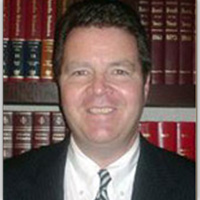 Fort Lauderdale DUI-DWI Lawyers, Florida
Fort Lauderdale DUI-DWI Lawyers, Florida
Sponsored Law Firm
-
 x
x

Click For More Info:
-
Joseph A. Gasparro, PA
813 Jackson Rd Jacksonville, FL 32225» view mapCriminal Defense Law Serving the Best Interests Of Our Clients
When you need accurate representation for criminal defense issues, Joseph Gasparro is there for you.
800-971-8621
Sponsored Lawyers
1-10 of 21 matches
DUI-DWI, Criminal, Securities Fraud
Glenn R. Roderman hails from the town of Port Jervis, New York, but he has been a resident of South Florida for several decades. Mr. Roderman obtained his Juris Doctorate in Law from Stetson University in 1972, and he has been practicing law in the state of Florida since that time. Mr. Roderman was admitted to the Florida Bar and to the U.S. District Court, Southern District of Florida, in 1972. In 1975, Mr. Roderman was admitted to practice before the U.S. Supreme Court. Mr. Roderman started his career as an assistant state attorney, serving in the Broward County State Attorney’s Office in 1973 and 1974. He later served as Associate Municipal Judge in the town of Davie, from 1974 to 1976, and then in North Lauderdale, from 1975 to 1977. Mr. Roderman started his own legal practice in the early 1980’s. He continues to serve as a respected legal analyst for ABC News Channel 10, WPLG, in Miami. With over 40 years experience in the Criminal Justice System as a former Judge, State Prosecutor, and Criminal Defense Attorney, Mr. Roderman is available to other attorneys as a Mentor or a Coach on any or all of their criminal cases. It is that experience, Mr. Roderman says, that matters as much as any law degree when it comes to representing someone in a criminal court. Mr. Roderman says he believes many newer attorneys seem to have given less credence to experience, believing that education, alone, qualifies them to practice good law. As he says in this video from his Spoken Law series, Mr. Roderman points out experience and education are both required for qualified legal representation.
(more)Criminal, DUI-DWI, Traffic, Juvenile Law, Federal
Evan Hoffman of The Hoffman Firm has built his legal career on protecting the rights of individuals across Florida, drawing on more than 17 years of criminal trial experience. He began in 1998 as an Assistant State Prosecutor with the Broward County State Attorney’s Office, where he handled over 100 jury trials and more than 120 non-jury trials involving charges such as battery, possession of a controlled substance, and DUI. After years as a prosecutor, Hoffman shifted his focus to criminal defense, using his insight into prosecutorial strategies to advocate for clients throughout Miami and the surrounding areas. He founded The Hoffman Firm with the belief that knowledge and experience are the strongest defense. Hoffman has authored articles on DUI, domestic violence, and illegal searches and seizures. In 2016, he identified a critical flaw in a DUI breath test machine — an error that led to the dismissal of his client’s charges and revealed that dozens of individuals had been wrongfully convicted. His work was featured by Channel 10 Eyewitness News. The Hoffman Firm represents clients across Miami-Dade County, including Miami, Miami Beach, Coral Gables, Homestead, Hialeah, Doral, Aventura, North Miami, South Miami, Key Biscayne, and nearby communities. To learn more about our costs and services, call 305-249-0090 or contact us online.
(more)Criminal, Traffic, DUI-DWI
South Florida attorney Charles Mead has spent two decades defending men and women who found themselves in desperate situations with few foreseeable alternatives. At this Florida law firm, the client is always the number one priority. If you are facing what appears to be insurmountable odds and incredibly painful accusations, you shouldn’t have to feel helpless or hopeless. Boca Raton attorney Charles. Mead’s practice is known for one-on-one service and attention to strategic details when defending clients against state and federal charges. He tailors every defense strategy to carefully fit each client’s situation, using research, innovation, and a thorough knowledge of state and federal law to get the best possible results. He can petition to have charges dismissed or dropped altogether to avoid trial, or if necessary, defend clients in criminal proceedings in a discreet and effective manner. Attorney Mead will make sure you are fully informed about your legal standing and will be by your side throughout what may be the most important battle of your life. If you are struggling, he can help you explore the legal alternatives to incarceration, helping you address the root issues that lead to problematic behavior. If you are falsely accused, he can help clear your good name once and for all. If you’ve turned over a new leaf, he can get your criminal record expunged.
(more)



 Joseph Gasparro Jacksonville, FL
Joseph Gasparro Jacksonville, FL AboutJoseph A. Gasparro, PA
AboutJoseph A. Gasparro, PA Practice AreasExpertise
Practice AreasExpertise



